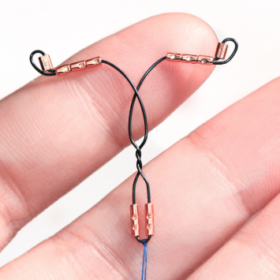
Guide to taking contraception: what are the key things to consider?
In this article
What's the lowdown?
There are guidelines that healthcare professionals use to help you choose the safest contraceptive options for you
Combined contraceptives that contain oestrogen have the most restrictions, usually due to your medical history
If you develop a new medical problem or start a new medication, make sure you speak to a healthcare professional about your contraceptive options
When you discuss contraception with a healthcare professional in the UK, they follow detailed guidelines to make sure each option is safe for you to use. These guidelines, called the UK Medical Eligibility Criteria (or UKMEC), fill a 176 page document written by the Faculty of Sexual and Reproductive Healthcare (FSRH). It breaks down the risks of using various contraceptive methods into four easy-to-understand levels. Here’s a quick summary:
- UKMEC 1 means the contraceptive is safe, with no restrictions – you’re good to go!
- UKMEC 2 means there may be some risks, but the benefits of preventing pregnancy outweigh these risks.
- UKMEC 3 suggests that the risks usually outweigh the benefits, so you’d need a specialist’s advice.
- UKMEC 4 means the contraceptive is not safe to use.
Different medical conditions and lifestyle factors are classified as 1 to 4 for each type of contraceptive. Now, let’s explore which conditions affect your contraceptive choice. For ease, we advise that a contraceptive is safe and can be used for classifications UKMEC 1 or 2, and not safe for UKMEC 3 or 4.
Age
You can start using contraception as soon as you’re able to get pregnant – aka, your periods have started. There is a myth that people who are younger or haven’t had a baby can’t use methods such as the coil. However, this isn’t true, any young person who has started their periods can potentially try a coil as long as you understand the fitting process and the risks and benefits.
There are specific guidelines for contraception over 40. You can’t use combined hormonal contraception (the combined pill, patch or ring) over the age of 50 as health risks associated with age increase, and will need to switch to an alternative method. It’s advised to stop the injection at the age of 50 and switch to another method, but you will be regularly reviewed if you want to continue the injection. When you reach 55, you no longer need to use any form of contraception.
Blood clots
If you have had a blood clot in the leg or lung known as a deep vein thrombosis or pulmonary embolism, this is classified as UKMEC 4, so you can’t use combined hormonal contraception.
The copper coil is safe if you have had a blood clot. The progestogen-only forms of contraception (progestogen-only pill, implant, hormonal coil and injection) are UKMEC 2 if you have had a blood clot, so you can still use them.
If someone in your family has had a blood clot, this may also affect which type of contraceptive you can use. For contraception, we only consider 1st degree relatives with blood clots meaning your brother, sister, mother or father. If you have a grandparent, aunt or uncle who has had a blood clot, this isn’t counted.
If your family member was under the age of 45 when they had their blood clot, you should not use combined hormonal contraception. If the family member was over the age of 45 then you can use combined hormonal contraception.
Being immobile for example after major surgery, being a wheelchair user or having a debilitating illness, can also increase your risk of blood clots so you should not use a combined contraceptive. Similarly, if you have a medical condition, such as lupus with “positive antiphospholipid antibodies” or a known gene that increases the risk of blood clots such as Factor V Leiden or protein C or S deficiency, you should not use combined hormonal contraception.
BMI
BMI, or Body Mass Index, is a number calculated using your height and weight, and it’s a handy way for healthcare professionals to get an idea of how weight might affect someone’s health. However, it’s not a perfect measure for everyone! For example, an Olympic athlete might have a high BMI due to muscle, not fat, and still be super healthy. So, while BMI is often used in medical research as a health marker, it doesn’t tell the whole story. Other things, like waist size and body fat percentage, can sometimes give a clearer picture of someone’s health.
When it comes to contraception, similarly to other medical guidelines, BMI is used to assess risk. All types of progestogen-only contraception and non-hormonal contraceptives are safe to use whatever your BMI. You can take the combined contraceptive pill for BMI over 30. However, combined hormonal contraception (the combined pill, patch or ring) can increase the risk of blood clots. A higher BMI also increases the risk of blood clots, therefore you will be advised to use a progestogen-only or non-hormonal form of contraception if your BMI is over 35.
Breast cancer
If you currently have breast cancer, using any type of hormonal contraception isn’t safe – and your doctor has hopefully told you this. If you’ve had breast cancer in the past, it’s best to use a non-hormonal contraceptive, but hormonal methods may be considered only as a last resort and in discussion with your oncologist.
We all have BRCA genes, which help protect us from breast and ovarian cancers. But sometimes, a BRCA1 or BRCA2 gene can have a fault, which means it doesn’t protect against breast and ovarian cancer as well as it should. If you know you carry a faulty BRCA gene from genetic testing, or if a doctor has told you that you’re at higher risk of breast cancer due to family history, it’s best to avoid combined hormonal contraception. However, UK health guidance says that progestogen-only contraception is still safe in these cases.
Medical conditions
Below are medical conditions which can affect the UKMEC classification for different types of contraception. If you have more than one medical condition, it’s important to consider all of them when discussing and choosing contraception. Risks can add up, so for example, while high cholesterol and diabetes separately are a UKMEC classification 2 for combined hormonal contraception, if you have both, this would change the risk classification to a UKMEC 3.
Inflammatory bowel disease eg Crohn’s and ulcerative colitis. You can use any form of contraceptive. But if you have regular diarrhoea or you have had areas of small bowel removed, you may not absorb oral contraceptive pills well which could make them less effective. In this case, you could choose a method that doesn’t involve a tablet like a coil, implant, patch, ring or injection.
Liver disease. You are advised to avoid all types of hormonal contraception if you have either a benign liver tumour called an adenoma or liver cancer. If you have severe liver cirrhosis you should avoid all hormonal contraception. If you have an acute flare of viral hepatitis (like hepatitis A, B, C or E) you should not start combined hormonal contraception.
High blood pressure. If you have high blood pressure, even if it is controlled with medication, you should not use combined hormonal contraception. You can use non-hormonal methods, the progestogen-only pill, hormonal coil, implant or injection.
Heart disease including arrhythmias, valve problems and cardiomyopathy. If you have impaired heart function, atrial fibrillation or complicated valve or congenital heart disease, you should not use combined hormonal contraception. Other forms of hormonal contraception are safe to use. If you have long QT syndrome, you can only undergo coil insertion under specialist advice.
Stroke. You cannot use combined hormonal contraception or the injection if you have had a stroke. If you have a stroke while using any form of hormonal contraception, you should not use that method again. However, if you had a stroke whilst you weren’t using the progestogen-only pill, implant or hormonal coil, you may try these in the future. You can use the copper coil and other non-hormonal methods.
Heart attack or angina. You cannot use combined hormonal contraception or the injection if you have angina or have had a heart attack. If you have a heart attack or develop angina while using any form of hormonal contraception, you should not use that method again. However, if you develop angina or have a heart attack whilst you weren’t using the progestogen-only pill, implant or hormonal coil, you may try these in the future. You can use the copper coil and other non-hormonal methods.
Diabetes. If you have type 1 or type 2 diabetes which is well controlled without any complications, you can have any form of contraception safely. However, if you have retinopathy, neuropathy or nephropathy complications, you should not use combined hormonal contraception. If you have other risk factors for cardiovascular disease like high cholesterol, you should not use combined hormonal contraception.
Gallbladder problems. If you have gallstones or gallbladder problems that give you symptoms or are controlled with tablets or medications, you should not use combined hormonal contraception. However, if you have no symptoms or have had your gallbladder removed, you can safely choose any form of contraception.
Thyroid disease. You can use any form of contraception if you have an overactive or underactive thyroid. However, if you are using thyroxine, your GP may check your thyroid levels 6 to 8 weeks after starting the combined hormonal contraceptive pill in case your thyroxine dose needs to be increased.
Medications
Some medications can interact with contraceptives and make them less effective. You should check with your doctor or pharmacist if there is an interaction whenever you start a new medication or contraceptive.
Smoking
If you are under the age of 35 and smoke, you can use any type of contraception – but we’d still encourage you to try and stop to help your overall health!
If you are over the age of 35 and smoke, you can use any progestogen-only or non-hormonal contraceptives, but you shouldn’t use combined hormonal contraception until you have stopped smoking for at least 12 months.
As vapes and e-cigs are quite new, we don’t have robust research about how vaping can affect contraception and your overall health, so for now, we treat them the same as cigarette smoking.
Migraine
Migraine is a type of headache and can occur with or without aura. We explain more about auras here. You can use progestogen-only or non-hormonal contraceptives safely with migraine.
If you have migraine with aura, you can’t use combined hormonal contraception safely as there is an increased risk of having a stroke.
If you have migraine without aura, you can try using combined hormonal contraception. Sometimes taking combined contraception back-to-back can actually help migraines if they are related to your menstrual cycle and hormonal fluctuations.
However, if you develop migraines, they worsen or become more frequent while taking combined contraception, you should stop and switch to another method.
Summary
As you can see, contraception can be complicated….especially if you have medical conditions that may affect your choice. If you’re confused – please speak to your healthcare professional.
Our medical review process
This article has been medically reviewed for factual and up to date information by a Lowdown doctor.







